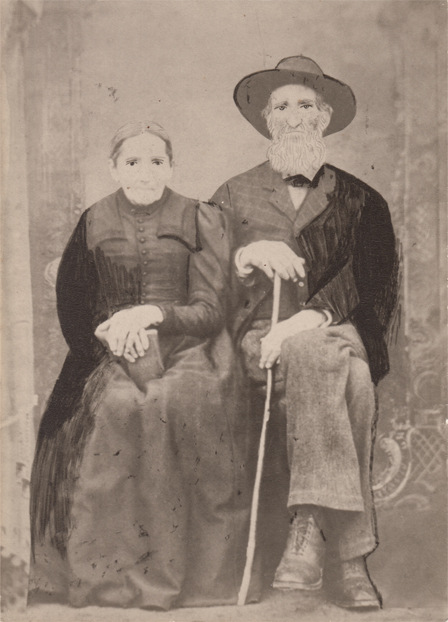William & Axey White
(Pasquotank County)
Featured Characters – Divided Allegiances

William
and Axey White
Courtesy of K. Paul Johnson
In 1783, William Twine White’s Quaker great-grandfather
faced a stiff fine and penalty for illegally freeing his slaves. His great-grandson did not hold similar
views. By the time of William T. White’s
birth in 1824, few Quakers lived in Pasquotank
County. So many left for the West during the early
nineteenth century that the meeting house at Little Creek was “laid down” in
1854. The few Quaker families that
remained converted to other faiths. The
Whites became Methodists. William T.
White’s father owned eight slaves, which he inherited upon Thomas White’s death
in 1839. Those slaves earned William T.
White a healthy living; the 1860 Census estimated his total worth at
$18,309.
Despite his age, thirty-eight,
White enlisted in 1862 in the reorganized 17th North Carolina
Infantry. However, he never reported for duty. Instead, White joined John T. Elliot’s band
of Confederate guerrillas. As the
commissary officer, White used his property to store food and supplies for the
partisan rangers. On his raid through
northeastern North Carolina,
Union General Edward A. Wild heard about White’s involvement with the
guerrillas. He ordered his black troops
to burn White’s house. White himself hid
with the other Confederate partisans in Pasquotank County’s
woods and swamps, leaving his wife, Axey, to face the Union troops alone. In a 1932 interview, White’s daughter
recalled her mother frantically throwing things out windows as the house went
up in flames. Although Governor Vance
ordered Elliot’s men to leave the region, White did not follow them. Returning home, he rebuilt his family’s lives. By 1870, his hard work
made White worth about $4,000 more than his 1860 income. William and Axey were part of the founding
members of Mt. Hermon
Methodist Church
in Pasquotank County. William died in 1897 and Axey
followed in 1900.
